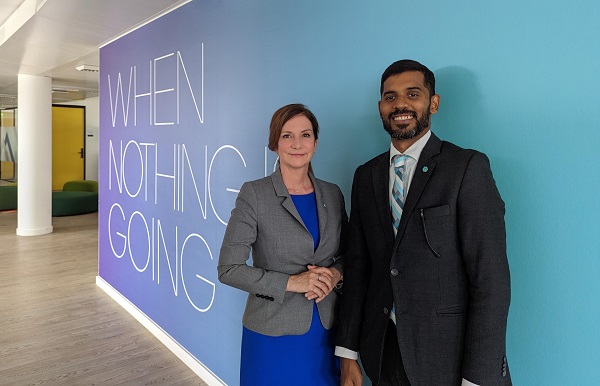
Chronicle.lu recently had the opportunity to speak with Julie Godin, Head of the Global Green Growth Institute's (GGGI) new Luxembourg office, to learn more about this international intergovernmental organisation's mission and its decision to set up its European Liaison Office in the Grand Duchy.
This article forms part of a series of interviews with "newcomers" hosted at the Luxembourg House of Financial Technology (LHoFT), i.e. startups having joined the LHoFT since 1 January 2022. GGGI has been present at the LHoFT since earlier this month, having inaugurated its European Liaison Office in Luxembourg on Friday 9 June 2023.
Chronicle.lu: Please introduce your organisation and the products/services it offers.
Julie Godin: GGGI is present in close to 40 countries. We support countries to transition to low-carbon, climate resilient economies that result in improved livelihoods, enhanced environmental sustainability and achievement of nationally determined contributions to greenhouse gas emissions reduction. This encompasses different areas such as climate change adaptation planning and mobilisation of green investments, blue economy and climate smart agriculture, e-mobility, waste management and circular economy, protection of natural areas, facilitating adoption of renewable energy, and supporting green industries through green entrepreneurship and green technology development and strengthening gender and social inclusion integration across all sectors.
Chronicle.lu: What led to the creation of your organisation?
Julie Godin: GGGI was established as an international intergovernmental organisation in 2012 at the Rio+20 United Nations Conference on Sustainable Development. Its vision is a low-carbon, resilient world of strong, inclusive and sustainable growth. GGGI was created because there was and still is a clear need to develop green projects to bankability in emerging economies and developing countries, and support countries with sustainable finance. Green and sustainable finance is definitely growing but it only still represents a small portion of the financial market today.
Chronicle.lu: Please elaborate on what brought your organisation to Luxembourg.








